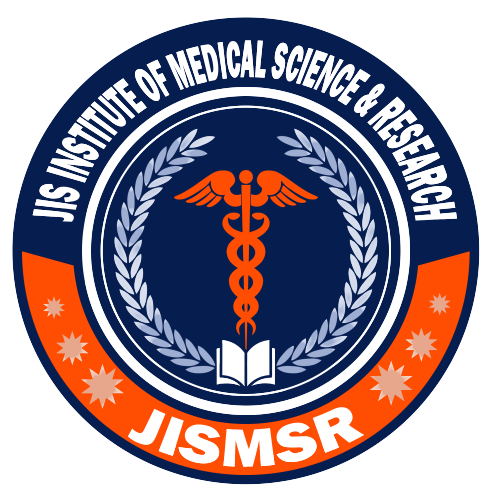LEARNING METHODS
Experiential Learning
At the JIS Group of Institutions, we ensure that our students learn through experience as the process involves self-assessment and initiative. Experiential Learning allows students to get hands-on experience so that they can connect their theoretical knowledge with the practical world. The institutions under JIS Group organize regular workshops (with industry professionals), industrial tours, open-ended projects, field experiences and industrial/community research projects, AICTE internships and have opened a new perspective towards the process of teaching and learning. The teachers practice the “Observe – Assist – Perform” philosophy. Simulation Training by various software enhances the experiential learning experiences. Field Trips and Community Outreach Activities (Schools, Orphanages, Old-Age Homes, NGO’s and Missionaries of Charities) are optimum experiential learning experiences used for students.
Many times, at seminars/webinars the faculty members/alumni have shared their learning experience with students to educate them about the current industry needs. Faculty members also deliver experiential content to students through demonstration with visual aids, periodical industrial visit experiences, presenting relevant research papers, analyzing case studies and conducting quizzes on relevant topics to make them industry-ready. Experiential learning enhances the analytical and problem-solving skills of students and improves their creativity, critical thinking, complex problem-solving skills, communication and collaboration skills, thus making them ready to face the challenges imposed by Industry 4.0.
Flipped Learning
There has been a paradigm shift in the educational sector over the past few years and educational institutions have adapted quite well to suit the changing needs of the time. To ensure perseverance, conscientiousness, leadership quality, adaptability and flexibility among students, we introduced them to “Flipped Learning” in 2016. We began with a six months rigorous workshop session for the faculty while educating the students and the parents about the different benefits of flipped learning. Our flipped learning courses are well organized into weekly/topic folders and have clear learning outcomes. They are prepared on Blendspace digital content creation platforms that include flowcharts, animations, PDFs, podcasts, audios, micro-lectures, videos, materials and activities that directly support learning outcomes and engages the students by allowing them to interact with the interesting content, their peers and the instructor. Blended Learning via Flipped Mode (using Canvas Portal) and via Enriched Virtual Mode (via Institutional LMS i.e. DSARP or other MOOC Platforms) encourages self-directed and participatory learning in students. Case Based / Problem Based Learning Exercises are embedded in each Module and shared with students via DSARP LMS. Additionally the Flip Learning Classroom houses an Interactive Flat LCD Panel from Neotouch, Sweden. These ICT tools allow teachers to effectively impart multimedia based teaching and manoeuvre smoothly among different interfaces and online resources.
We have incorporated Artificial Intelligence-based Online Performance to assess the academic self-efficacy of our students. A special class dedicated solely to the flipped learning process, known as ‘Doubt clearing session’ is held from time to time by the Departments.
Many times, at seminars/webinars the faculty members/alumni have shared their learning experience with students to educate them about the current industry needs. Faculty members also deliver experiential content to students through demonstration with visual aids, periodical industrial visit experiences, presenting relevant research papers, analyzing case studies and conducting quizzes on relevant topics to make them industry-ready. Experiential learning enhances the analytical and problem-solving skills of students and improves their creativity, critical thinking, complex problem-solving skills, communication and collaboration skills, thus making them ready to face the challenges imposed by Industry 4.0.
Project-based learning
Project-based learning is an instructional approach designed to allow students to develop knowledge and skills through engaging projects set around challenges and problems they may face in the real world. The Departments introduce various projects every semester. Starting from the very first semester students gain knowledge and skills by working on live industrial projects that give them the chance to explore real challenges and acquire deeper knowledge in their academic field. All the institutions under JIS Group follow project-based learning every semester. The students are assigned projects every semester on the various semester subjects and they participate actively in the innovative projects through small group division. Subject faculty members are assigned project classes and they guide the students in the same. Poster Making is inculcated in the Syllabus too. In addition to this – the clubs organizes various activities which include project making e.g. Best Out of Waste Competition and Innovative Waste-Management Practices. Teachers use ICT-enabled tools for effective teaching and learning process, including online resources: Smart class Boards and Interactive Smart Panels which have a dedicated Smart Learning Centre in the Academic Block with Interactive Smart Boards from Cybernetyx, Germany. The core objective of project-based learning at our institutions is to enhance personal and professional growth by focusing on self-reliant learning.


